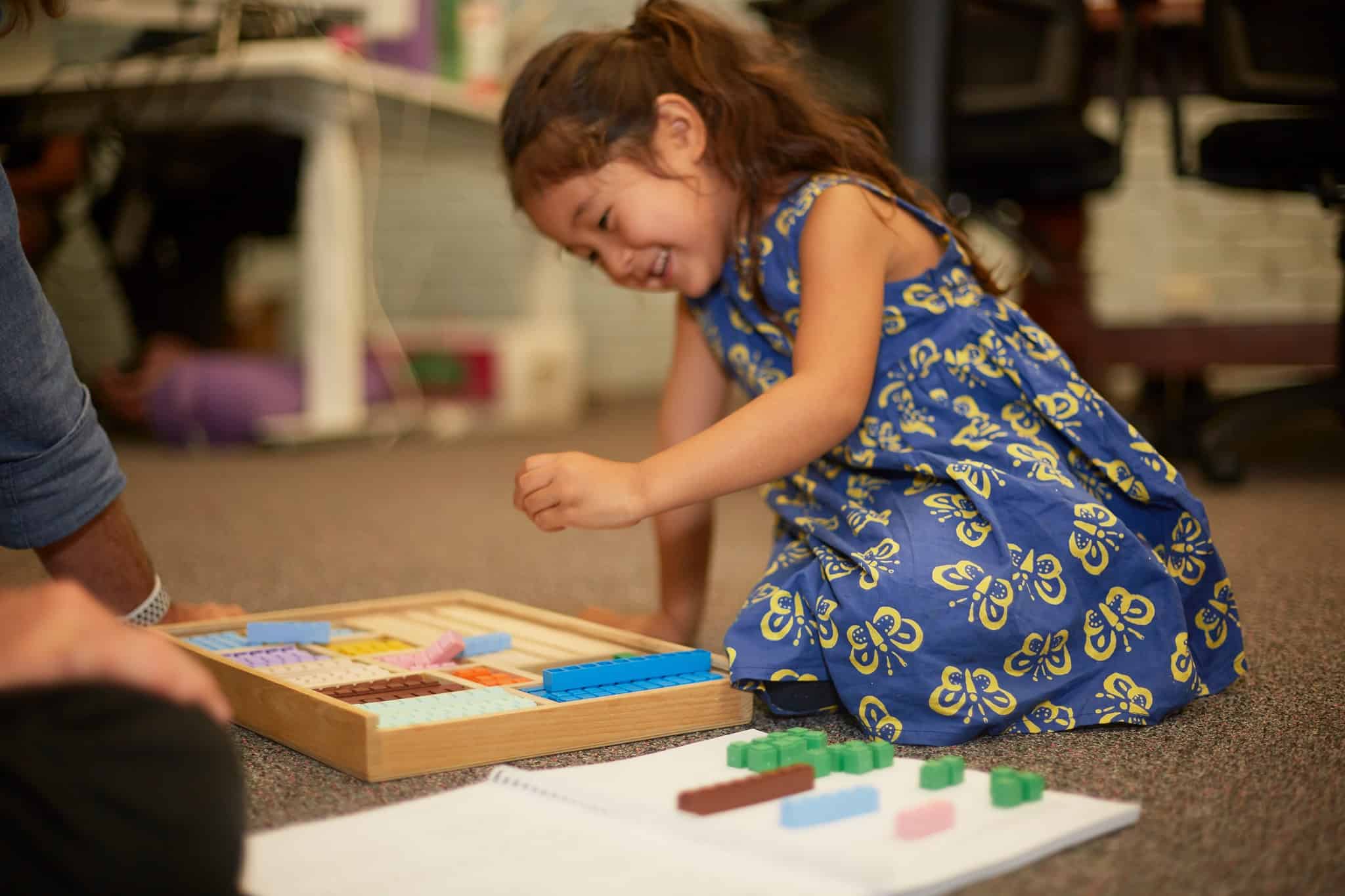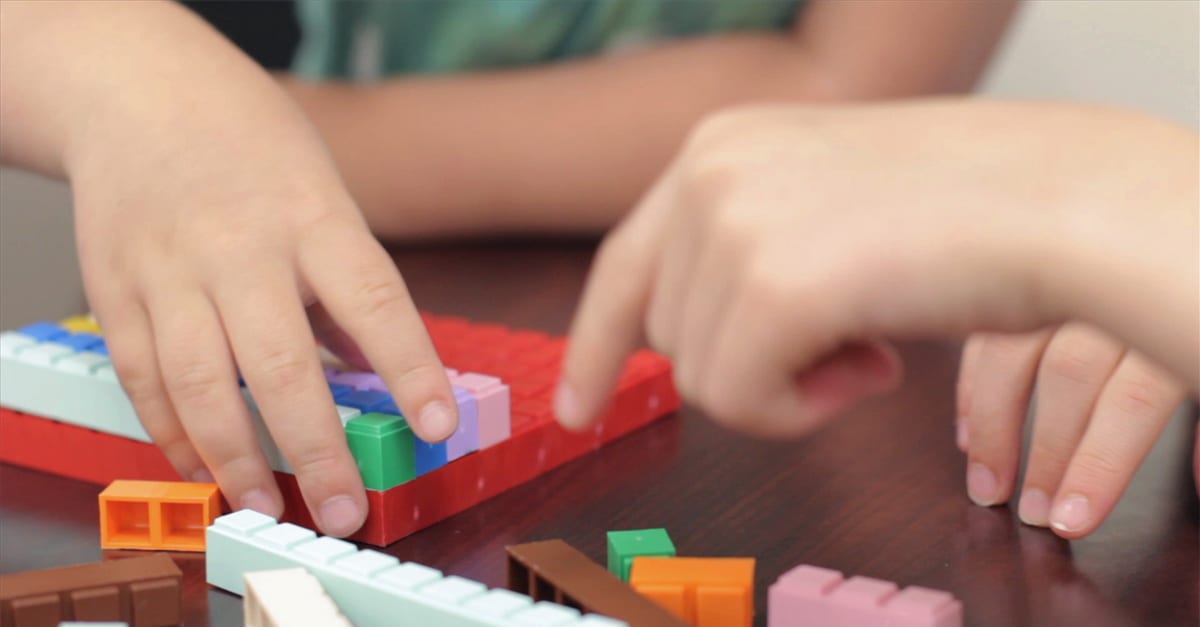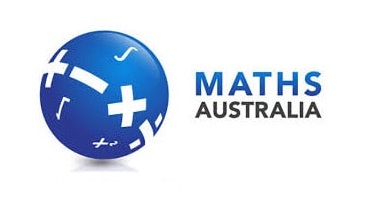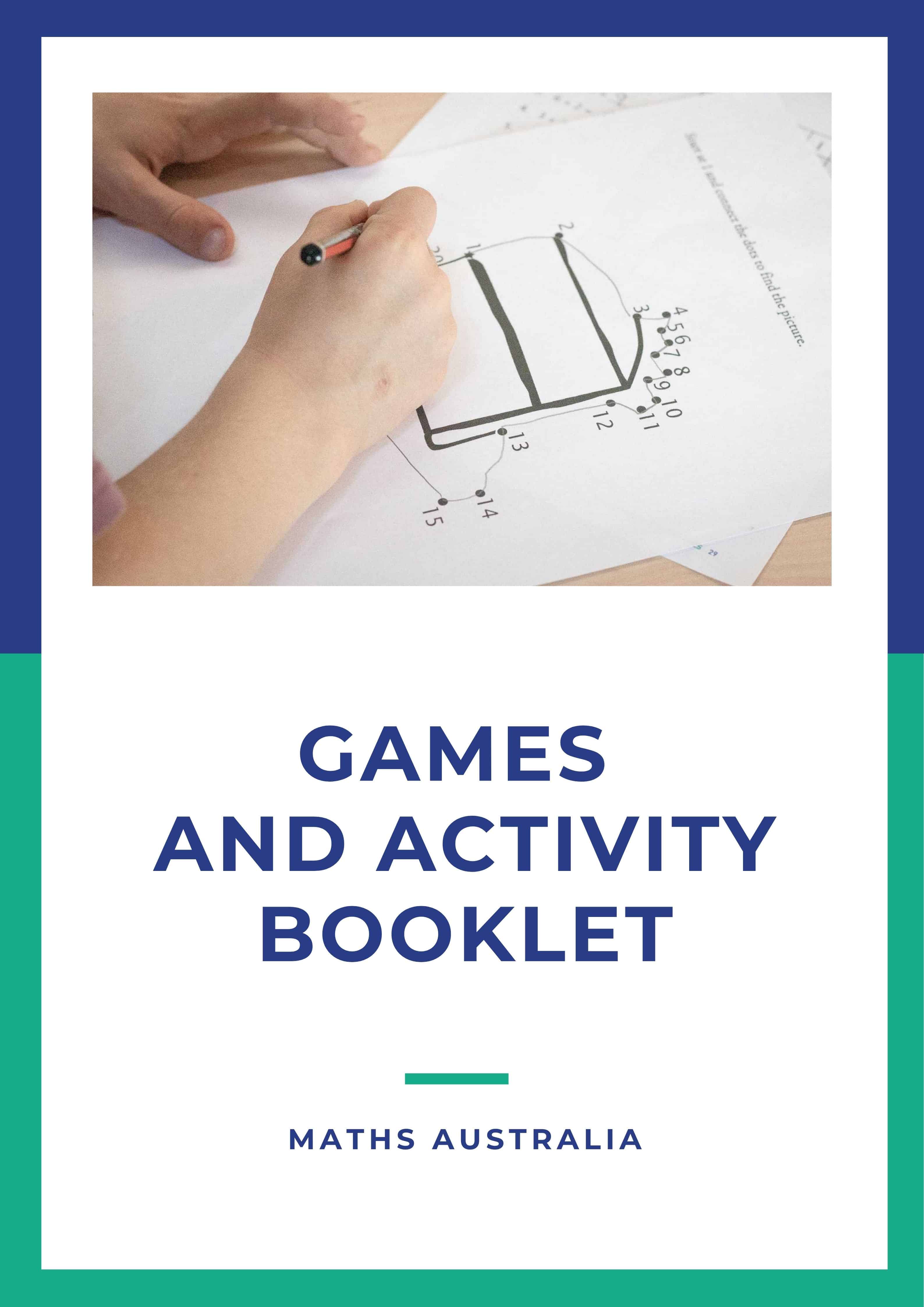
Is my child ready for preschool maths?
It's a question many parents ask themselves when they watch their young ones grow up and start taking an interest in the world around them.
Is it too early to start with a program for maths? Is choosing a proper maths program to follow too much pressure for them? How do you know when it's the right time to get started on such a complex subject? And how do you implement tactile learning to keep learning fun and engaging for their young minds?
Some parents know straight away. If you've got a child that is already starting to count numbers aloud and start adding up simple objects around the home, you're ready to get started straight away.
What's important to consider before getting started?
First of all, you need to consider what method or approach you will be using to teach maths. Instead of pulling out buttons, checkers and coloured popsicle sticks, you need to know what to teach your young ones and how to set them up for an ongoing understanding of numbers.
The best suggestion that has worked successfully with preschoolers? Using hands-on tools to teach maths. And not coloured popsicles. Hands-on blocks that are specifically coloured and scored with the corresponding number value for greater memory, retention and understanding of maths.
There are a few important reasons why hands-on tools are the best way to introduce young mind to maths, as well as setting them up for their ongoing education. Research shows the importance of making maths multisensory and tactile for your child, and the results are astounding. By making strong neurological pathways for your child by utilising a range of senses, you are supporting your child's positive growth in more ways than one.

What is the best way to introduce maths?
Using hands-on tools to teach maths is highly effective. Research about using hands-on manipulatives coming from many different learning environments across the globe all agree on one thing - this is the most effective solution for maths instruction and is essential in making maths easy to understand. Most often, maths is taught as a complicated subject and because it's so abstract, many children often struggle. They either remember the formula or simply don't get maths at all, and end up hating the subject entirely.
Why would anyone hate maths? Well, because it wasn't taught properly. Maths is the language of the Universe and is something we use every day. We add up people in a room to figure out how many cups of juice to pass out to our friends, we go to the shops and make sure we have enough snacks for 5 people x 5 school days and we estimate weight, measurement and figures constantly. We'll always need maths, in the same way we'll always need language as a means of communication.
Similar to teaching the English language and literacy skills to our young ones, maths must be taught as a language. If we're wanting to support our children and want maths to make any sense to our kids, we need to start from the ground up.
Here are a few important concepts to remember:
By using hands-on blocks to teach maths, you are introducing numbers to your child through involving all five senses, allowing them to touch, feel and see the numbers as they learn them. This is especially important for kinaesthetic learners, but impacts all learning styles and is especially effective for young minds.

Where should I start with preschool maths?
Teaching maths using simple and engaging activities is often the easiest way to introduce the topic to your child, especially if you think that jumping straight into maths books will overwhelm them.
Our Preschool Maths Complete Set is the perfect place to start with your child. Lessons are explained in step-by-step manner, with instruction videos and student workbooks to compliment your child's learning. The workbooks are filled with loads of fun games and activities, and are specifically designed for preschool and younger kids to learn through having fun with numbers!
Here's some simple games you can use to get started learning maths with your child. By starting with small, easy activities, you can introduce numbers to your little ones in a relaxed manner. When you're relaxed and enjoy the process, they will too!
4 Simple Games to Get Started with Maths

1. Practice memorising the colours
Important concepts in our preschool maths program require your child to understand the connection between the length, colour, and number of each block. Here are some activities that can help develop these skills:
Activities such as these allow your child to become familiar with block colours and prepares them to begin associating the blocks with numbers.
2. Play matching games
The activities below help your child develop an innate sense of number relationships, which will be important as kids learn concepts such as "less than" and "greater than" numbers.
3. Learn number pattens with games
Your child will learn to connect the blocks to their corresponding number and correct value, supporting them to understand patterns and numbers and to engage in a visual and kinaesthetic way with maths.
4. Sorting and re-grouping activities
Block sorting activities help your child understand how to think logically and organise information quickly. These are necessary skills for math reasoning which sets the foundation for further logical thinking.
Here's a freebie to get started with preschool maths
Our popular preschool maths program has been used successfully across Australia at home and in the classroom. Young children are introduced to maths in a fun, engaging way and are supported to learn numbers in a concrete, foundational way.
You can also download a free copy of the Games and Activity Booklet and start learning maths through fun games and activities right away!
Let us know if you have any questions,
Have fun learning maths with your little ones,
Esther White

